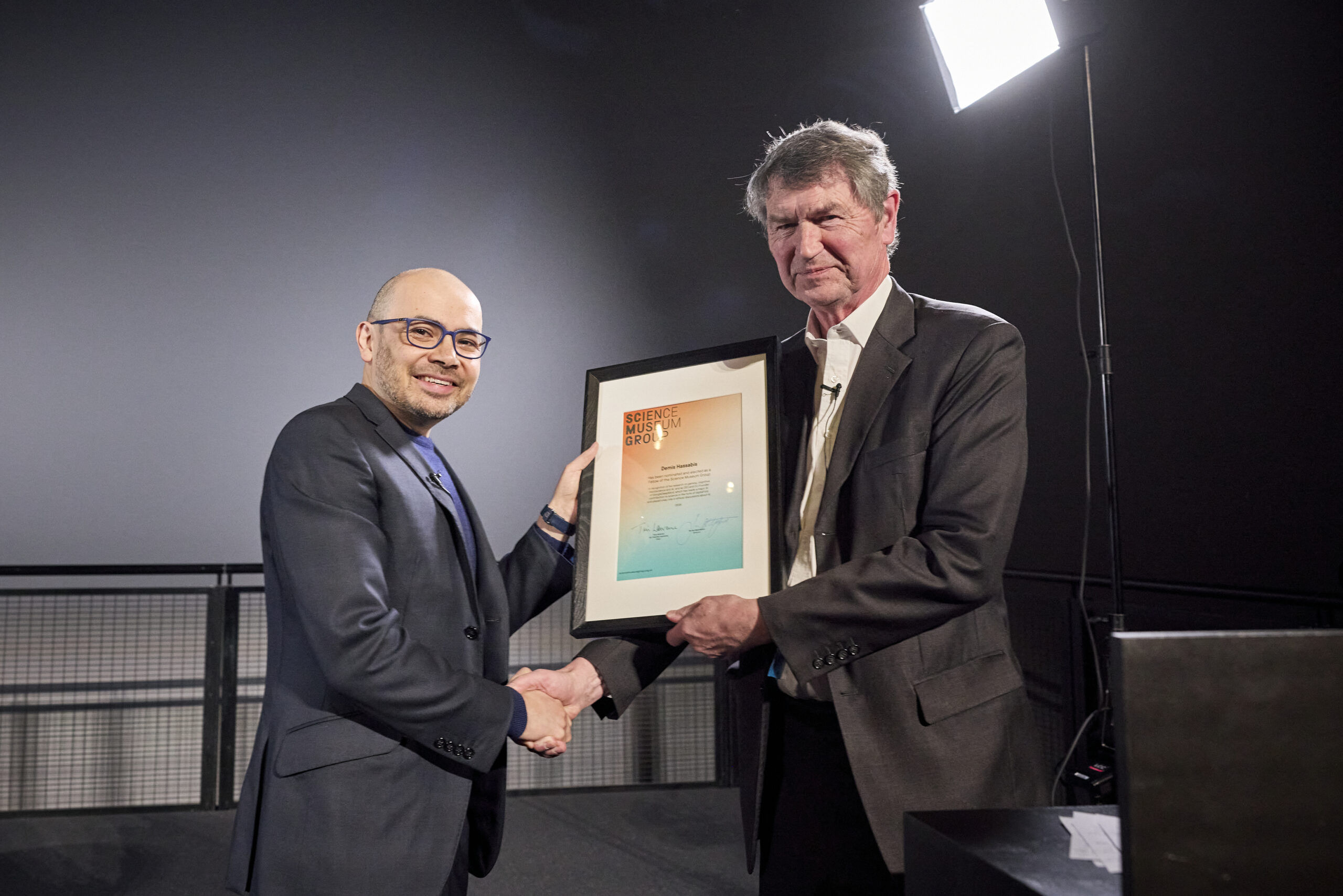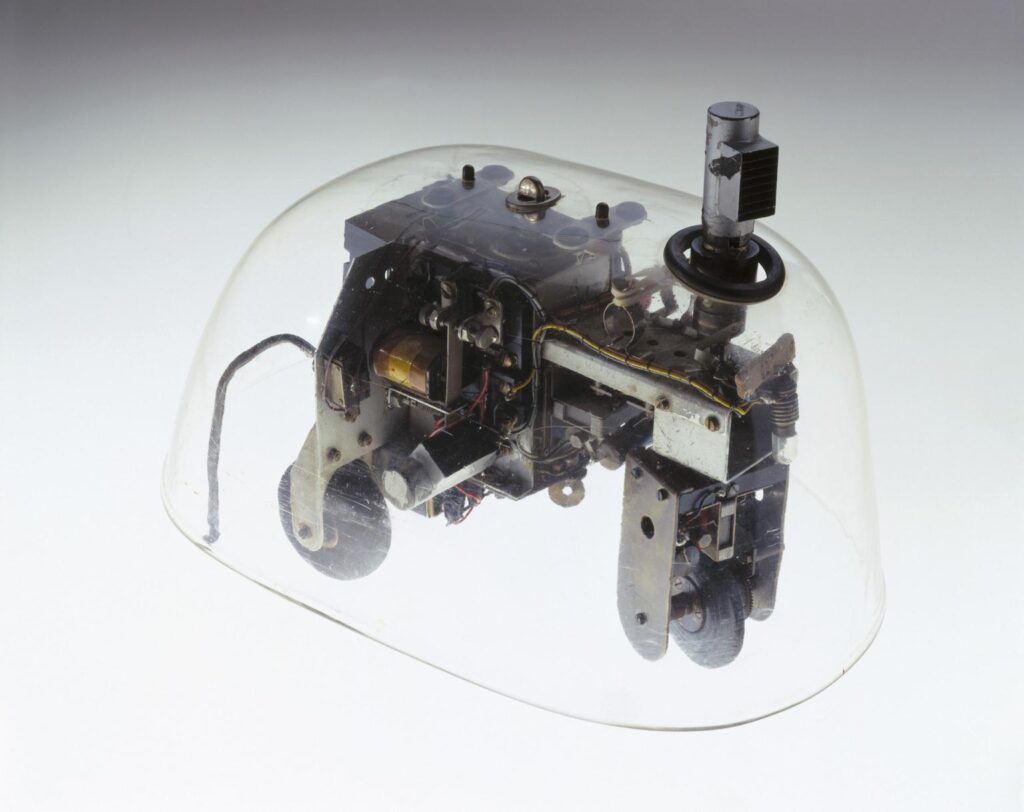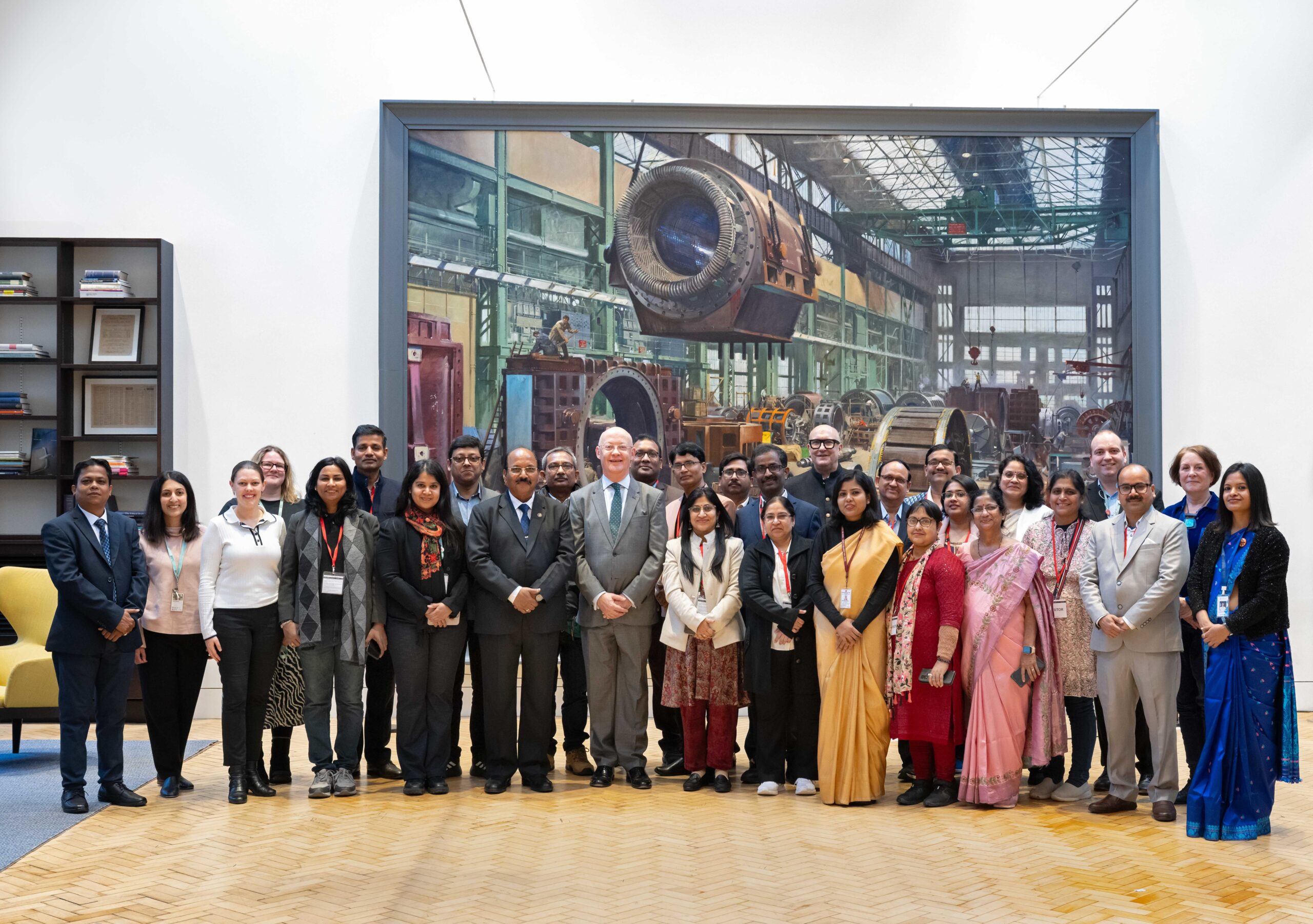Sir Demis Hassabis has become the latest innovator to receive a Science Museum Group Fellowship, in recognition of his major contribution to science through artificial intelligence (AI) and the key role he has played in ethical discussions about AI.
The CEO and Co-Founder of GoogleDeepMind was presented with the award by Science Museum Group Chairman Sir Tim Laurence in front of a packed audience in IMAX: The Ronson Theatre that included The Thinking Game’s director and producer – Greg Kohs and Gary Krieg – as well many of the researchers who have contributed to ground-breaking AI work such as Shane Legg, a co-founder of DeepMind.

Sir Tim Laurence cited Sir Demis’ ‘research on gaming, cognitive neuroscience and AI’ and drew particular attention to AlphaFold, the AI model that has solved a 50-year-old problem by cracking the code for the structure of proteins.
Proteins are often described as life’s building blocks so this breakthrough has enormous potential for understanding, treating and preventing disease as well as tackling wider challenges such as how to decompose plastic.
Predicting proteins’ three-dimensional structure, from the amino acids sequences they are composed of, has proved notoriously difficult for researchers. By successfully predicting the structure of hundreds of millions of proteins – and then sharing that data with the world – the Alphafold team at GoogleDeepMind, which is based in London, have helped researchers in nearly 200 countries to further their scientific goals.
Sir Demis and his colleagues continue to work towards the creation of an artificial general intelligence, by combining insights from neuroscience with new developments in machine learning and computing hardware to develop ever-more powerful learning algorithms, known as agents. These general purpose agents differ from earlier AI algorithms that were designed only to tackle very specific problems.
On receiving his award, Sir Demis said: ‘The Science Museum is such an inspirational place for kids to learn about science – especially today, when it’s more important than ever. Rational thinking and the scientific method are critical to the development of AI and to make sure it benefits society.’
The Science Museum’s interest in AI goes back many years.
In August 1951, Alan Turing visited the museum and was amused by the remarkable cybernetic ‘tortoises’, created by brain researcher Grey Walter as an ‘artificial animal’ designed to investigate brain functions.
The pilot ACE (Automatic Computing Engine), based on Turing’s ground-breaking designs and described at the time as an ‘electric brain’, was one of the first computers built in the UK and can be seen in the museum’s Information Age gallery.

By 1950 Turing published his paper on the ‘imitation game’ or ‘Turing Test’, partly in response to the widespread view that machines would never be able to ‘think’. Turing and others kickstarted new research on AI, robotics and computer science throughout Britain, and that research has continued ever since.
Every year, the Board of the Science Museum Group awards Fellowship to a very select group of people who have made a major contribution to science, philanthropy or the history of science. Previous recipients include several Nobel prize winners, former directors of CERN, astronauts and cosmonauts, and the late Queen.
This week, the Science Museum Group also awarded a fellowship to Samarendra Kumar, Deputy Director General of India’s National Council of Science Museums in recognition of his invaluable support and partnership with the Science Museum Group over the years.

His leadership and dedication have played a vital role in fostering meaningful collaborations, from the Illuminating India Season at the Science Museum in 2017 to Injecting Hope, an exhibition exploring the global response to COVID-19 that has been seen by more than 3 million people across the UK, China and India thanks to support from Wellcome and The Huo Family Foundation and deep collaboration between the Science Museum Group, the National Council of Science Museums in India and the Guangdong Science Center in China.